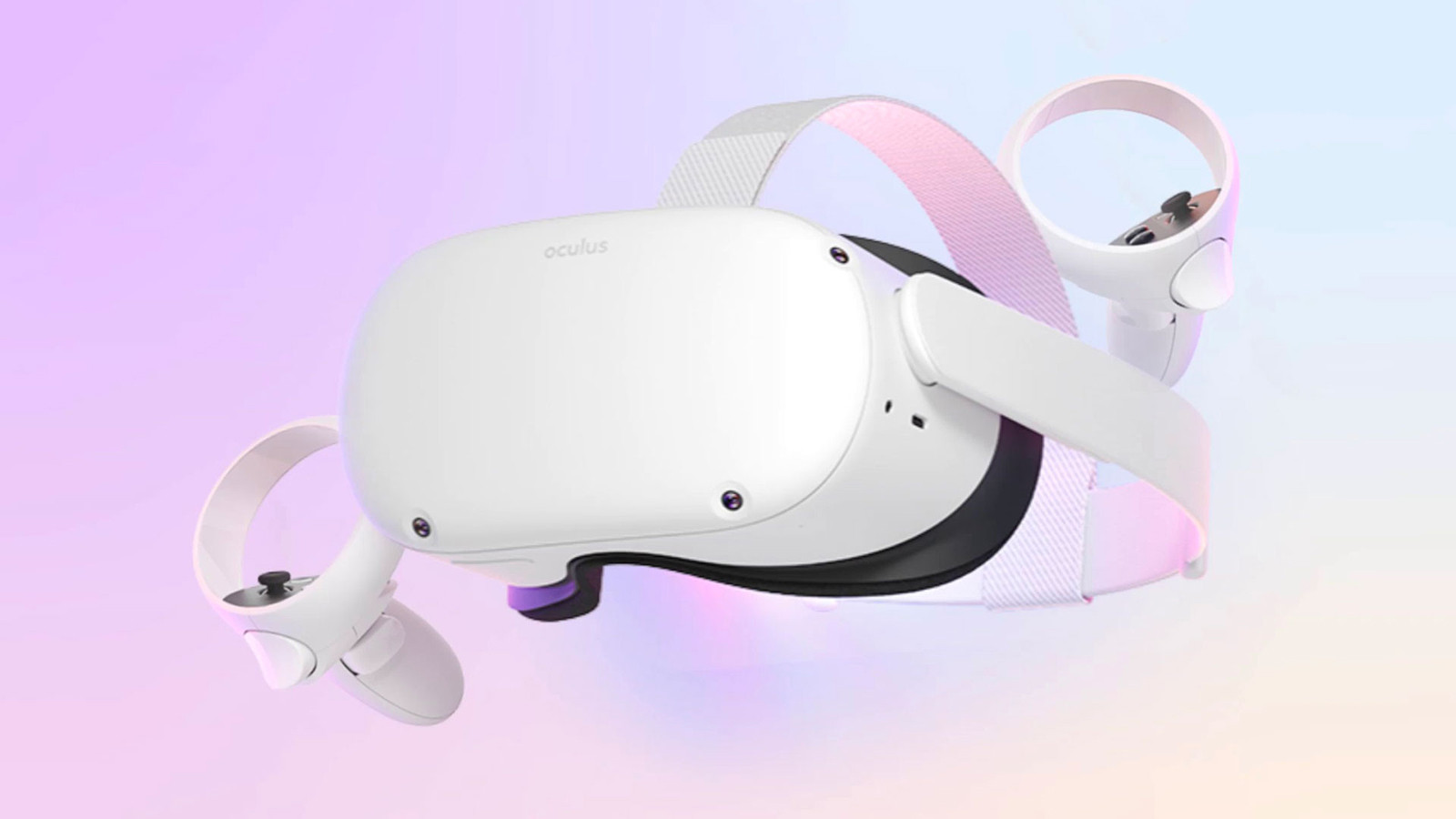Oculus VR in-game ads backlash may cause developers to rethink their plans
One VR game dev has already adjusted its advertising roll out

Sign up for breaking news, reviews, opinion, top tech deals, and more.
You are now subscribed
Your newsletter sign-up was successful
Facebook, owners of the Oculus VR platform and Oculus Quest 2 hardware, has a community of angry virtual reality fans on its hands. It’s facing a backlash against its plans to introduce advertising into its virtual reality titles, and vocal fans are already leading one developer to adjust its plans.
The injection of advertising into games (presented so far relatively discreetly, like the touchline banner adverts you’d see on a football pitch), was pitched to fans as a good thing, with Facebook stating its intention is to give its developers more opportunities to generate revenue. But the feedback to Resolution Games’ plans to test adverts in its Blaston game has been resoundingly negative, with the game being ‘review bombed’ by users (bombarding the user score area with bad reviews focussed on the advertising issue).
As a result, Resolution Games is now backtracking on its plans.
“After listening to player feedback, we realize that Blaston isn’t the best fit for this type of advertising test,” the developer said in a statement. "Therefore, we no longer plan to implement the test." However, Resolution Games will continue the testing in one of its other titles, the free-to-play Bait!
After listening to player feedback, we realize that Blaston isn’t the best fit for this type of advertising test. Therefore, we no longer plan to implement the test. We look forward to seeing you in the arena and hope you try the Crackdown Update that went live today!June 21, 2021
- Best VR headset: Oculus Quest 2, PSVR, Valve Index and more
- Best VR games: the best VR games you can buy right now
- Apple VR headset release date, price, news and rumors
The monetization of the VR oasis
For many VR fans, the promise of virtual reality has always been as a digital escape from the norms of the real world – a perhaps naively utopian vision of a space where real world rules don’t have to apply – right to the capitalistic standards of omnipresent advertising.
But Oculus owner Facebook has built its empire around advertising and so this feels like an inevitability. It also goes some way to explaining why Facebook has mandated that a Facebook account has to be tied to the Oculus Quest headsets – not only to improve social communication among friends, but also to tap into the wealth of user data it can use to target advertising with.
Still, perhaps there’s good to come of it all – Resolution Games’ decision to stick with advertising in only its free to play title is a positive one. We get free games, they get some extra cash to make new ones. But here’s hoping that doesn’t become the direction VR titles lean towards – you only have to look at the race-to-the-bottom quality of mobile free-to-play titles to see where that approach can lead you.
Sign up for breaking news, reviews, opinion, top tech deals, and more.
- Oculus Quest 3: rumors, predictions, and likely release date

Gerald is Editor-in-Chief of Shortlist.com. Previously he was the Executive Editor for TechRadar, taking care of the site's home cinema, gaming, smart home, entertainment and audio output. He loves gaming, but don't expect him to play with you unless your console is hooked up to a 4K HDR screen and a 7.1 surround system. Before TechRadar, Gerald was Editor of Gizmodo UK. He was also the EIC of iMore.com, and is the author of 'Get Technology: Upgrade Your Future', published by Aurum Press.